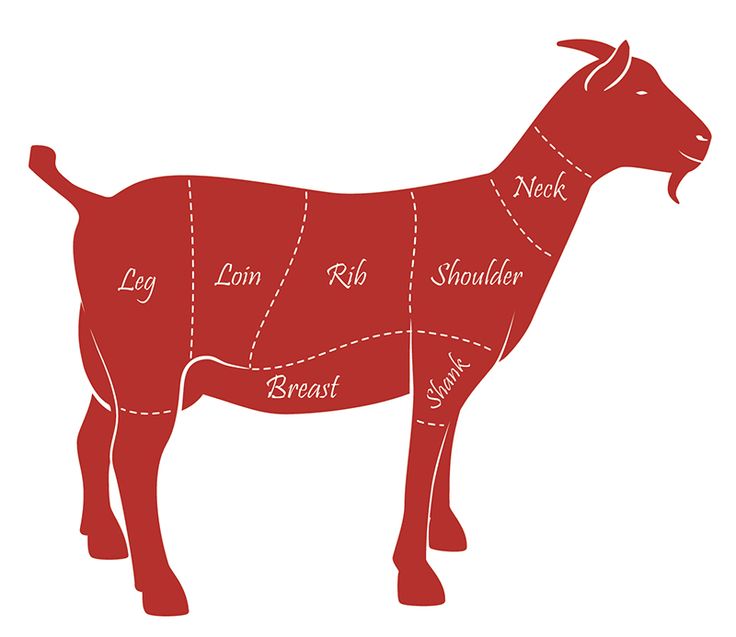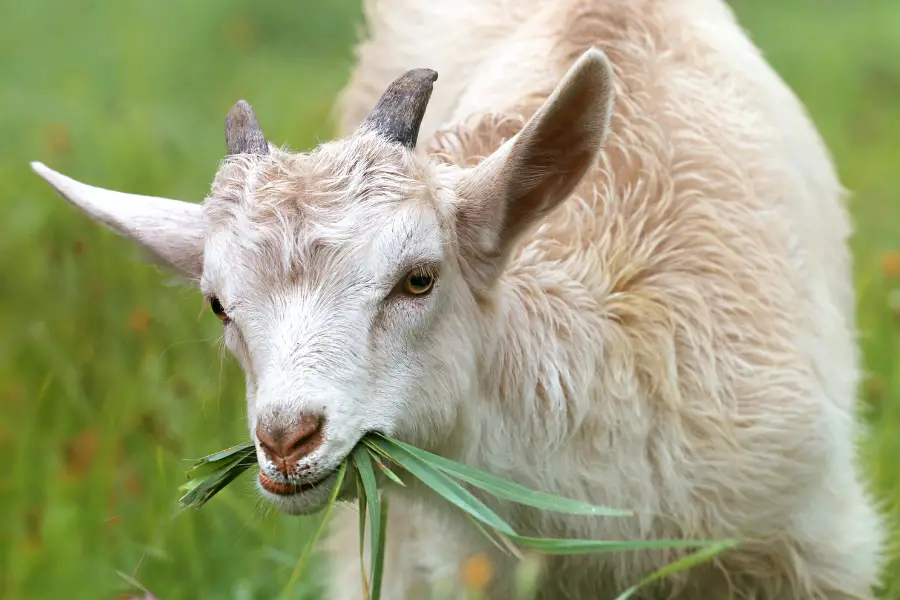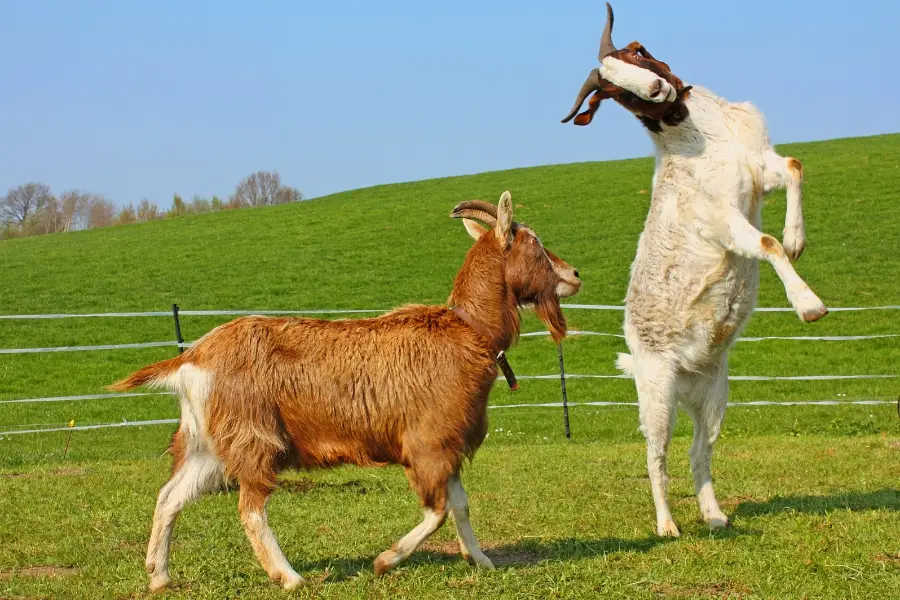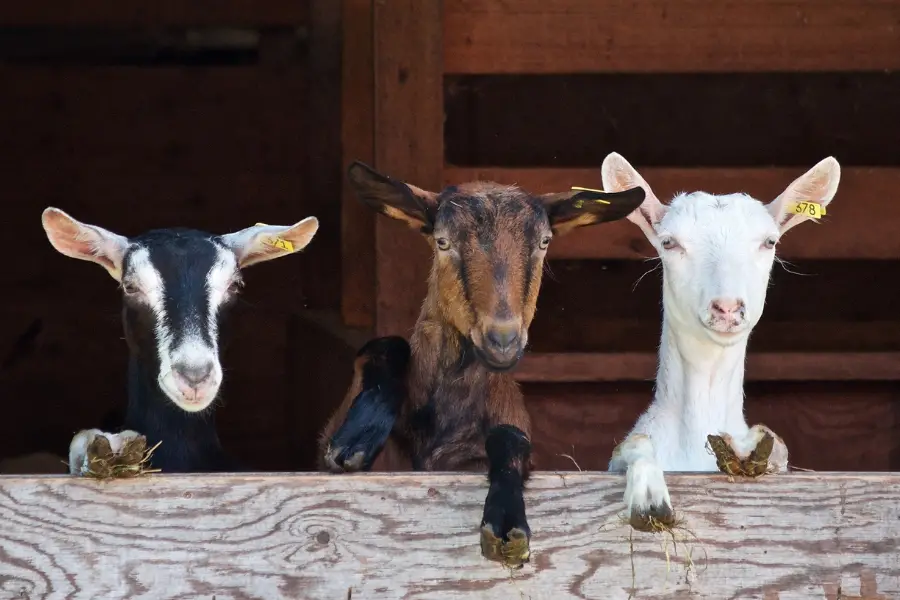
All breeds of goats are different and are used for different purposes. If you are interested in starting a goat farm, you need to know the differences so that the animals you get suit your purposes. In this article, we will be discussing Nubian goats.
Table of contents
- Nubian Goat Uses
- Nubian Goat Origin
- Nubian Goat Appearance
- Nubian Goat Characteristics
- Nubian Goat Price
- Raising Nubian Goats
- Nubian Goats Breeders
- Nubian Goats Shelter
- Nubian Goat Farming
- Nubian Goats Care: Top tips
- Nubian Goat Associations: What are the Major Nubian Goat Associations in the USA?
- Wrapping Up
- Video: Nubian Goat FAQs
You will find everything you need to know or have ever wondered about this breed. You will learn where they came from, how to look after them, what you can expect to pay for them as well as other interesting facts. Once you are done, you will know exactly what you are getting yourself into should you decide to raise and breed Nubian goats.
Nubian Goat Uses
As with most goats, Nubians were originally used for their meat and milk. However, in recent years, farmers have chosen to use them more as dairy animals.
Nubian Goats produce less milk than other dairy breeds, but their milk contains the highest butterfat content and is incredibly flavorful. When you combine the flavor and high butterfat content, you have the right factors to start making good cheeses.
Nubian goats are also known for being very affectionate; they have been known to readily display signs of affection. They are also able to handle very high temperatures and have a prolonged breeding period. These factors mean that the goats can produce milk almost year-round, which makes them a good dairy breed. In the case of Nubian goats, you get quality over quantity.
Their milk has a distinct flavor which makes their cheese superior. Thanks to the high butterfat content, it does not take much effort to create cheese. They are intelligent animals and will quickly learn what is expected of them. After only a few milkings, they will know how and where to stand to make the process easier.
These goats are generally quiet and will only make a noise if they have a reason to. All these factors are what make Nubian goats one of the most popular dairy breeds.
Nubian Goat Origin
Nubian goats are one of the oldest breeds in the world. Although their origins are murky, they are named after the Nubia region in North Sudan. These ancestral roots are part of the reason why the breed can withstand high temperatures for so long. The French played a part in making this breed popular, but it is thanks to the British that we have the breed that we know so well today.
The breed that we know today is the Anglo-Nubian goat. The British would use pure Anglo goats and breed them with Nubian goats to achieve the desired results. Anglo goats could have their roots traced back to prove their quality breeding status, but the Nubian goats had a lesser-known past. In time, restrictions were placed on what type of Nubian goats could be used and the process was streamlined.
Other breeds were occasionally introduced to keep the gene pool clean, which explains why some Anglo-Nubian goats have traces of different breeds in them. Anglo-Nubians quickly became a very popular breed, and it was in the late 1890’s that they were first shipped to America. Not only did they take Britain and France by storm, but they soon became an American favorite too. Nowadays, they are one of the most popular breeds in America.
Nubian Goat Appearance
Nubian goats exude an air of elegance with their distinctive physical attributes. One of the most striking features is their prominent, long, and pendulous ears. These ears, often described as “airplane-shaped” or “banana-like,” hang down on either side of their head, lending an eye-catching charm to their appearance. Not only are these ears aesthetically pleasing, but they also serve a practical purpose, aiding in the regulation of body temperature.
A Play of Colors and Patterns
The Nubian goats boast a wide range of coat colors, making each individual unique. Their coats can be solid black, brown, or various shades of tan. Some Nubians have delightful spots or patches that add an extra touch of personality to their appearance. The combination of colors and patterns often creates a visually striking spectacle in the herd, leaving onlookers in awe.
Magnificent Physique
When it comes to their physical stature, Nubian goats exhibit a strong and robust build. They have a well-muscled body with a straight back and a deep chest. Their neck is typically long and graceful, adding to their regal bearing. These goats stand at an average height of around 30 inches at the withers, giving them a commanding presence among other goat breeds.
The Face of Beauty
The face of a Nubian goat is truly captivating. With their large, expressive eyes and a gentle, intelligent gaze, they seem to possess a wisdom beyond their years. Their noses are slightly convex, giving them a distinctive profile. Some Nubians have a “Roman” nose, which is slightly arched and further enhances their unique charm. Their facial expression often exudes a sense of curiosity and friendliness, making them a joy to interact with.
A Breed with Versatile Horns
While not all Nubian goats have horns, those that do exhibit a remarkable variety of horn shapes and sizes. The horns can grow upward and outward, forming an impressive arc that adds to the breed’s majestic appearance. Some horns have a spiral or twisted pattern, further accentuating their allure. The diversity in horn structures among Nubian goats makes each individual distinct and fascinating.
A Delightful Combination
Nubian goats are a breed that embodies beauty and grace. Their long, pendulous ears, captivating coat colors and patterns, robust physique, expressive faces, and versatile horns contribute to their undeniable allure. Whether grazing in a field or participating in a show, Nubian goats are a sight to behold and a testament to the diverse and captivating wonders of the animal kingdom.
Nubian Goat Characteristics
This breed is known for being quiet and intelligent. They will quickly adapt to doing things the right way after being shown what to do.
They are mostly quiet as long as they are well-looked after and will not cause much trouble. Anglo-Nubians have long, pendulous ears and markedly convex nasal bone; it should be noted that the males’ heads are usually more pronounced.
They have an upright stance that is reminiscent of Swiss breeds and there is a pronounced brisket and high withers. Females tend to have short glossier coats, while males have longer and hasher coats. They are among the heaviest and tallest breeds with males averaging 140 kgs. and females 110 kgs.
Anglo-Nubian goats are known for being strong and sturdy, the breed also ages very well. Females have been known to breed and produce quality milk well despite being over the age of twelve. The breed is also well-known for its fertility. Twins, triplets and even quadruplets are more than likely if the dam is well managed. The breed can come in a variety of different colors, which makes breeding interesting.
The ideal Anglo-Nubian will be an alert animal. If it is healthy it will stand tall. A wry nose is not acceptable. The ears should be wider than the nose, and the neck should not have any tassels.
Nubian Goat Price

A factor that holds many back from starting their own goat farm is the price. They are unsure of how much it will cost or where to start. The best place to start would be to buy the goat. Most goat kids are priced between $100-$300.
This price may change between breeds and may depend on how purebred your Nubian goat is. Females also tend to cost more. If you plan on breeding the goats, you must make sure that the goat has high-quality lines; you will have to pay more for good stock.
You cannot just buy one goat. Goats are herd animals, and they will be unhappy on their own. An unhappy goat is a loud goat – save yourself the agony and get more than one goat.
As with most animals, purchasing them is only the beginning. You will need to put up a simple fence because goats are good at being where they are not supposed to be. Besides the fence, you need to keep in mind that goats prefer a varied diet.
You will need to research the prices of the different feeds to get the best prices in your area. Goats also need supplements and regular care. You will only need vet care in emergencies since Nubians are such a sturdy breed, and you can do most of the care yourself.
Raising Nubian Goats

As mentioned before, goats love being where they are not supposed to be.
The best solution is to build a fence, which does not have to be higher than 5 feet. You also need to remember to put the posts outside the fence.
Goats need a lot of space to roam, especially Nubians since they get big; about 500 square feet should be enough for two goats.
Your Nubian will survive mostly off hay; if they have no other choice, that will be all they eat. But goats love variety and do well when you spice things up for them. A handful of grains every now and then, some treats from the garden or alfalfa pellets will go a long way and make your goat happier.
When you get your Nubian, your vet will put together a basic vaccination schedule. You will need to follow this to make sure that your goats stay healthy. Pregnant does will also have their own vaccination schedule, so it would be wise to consult your vet. You should also expect a deworming schedule, which will be more regular in northern climates.
Every Nubian is different, so when it comes to taking care of their hooves, check factors such as weather, growth rate and natural wear. It is recommended that you trim their hooves every month.
Breeding Nubian Goats
Breeding Nubian Goats is fairly easy. The breed is highly fertile and will continue breeding long after most breeds are too old.
If you take proper care of them and manage the dam well, your Nubian could be producing twins, triplets or even quadruplets.

To keep them healthy, make sure that you give them regular supplements, fresh water, and a salt block to lick.
When your doe gets pregnant, make sure that you vaccinate them for Clostridium perfringens about one month before they give birth. Once the kids have been birthed, you need to wait for six weeks before vaccinating the kids. After that, you need to take them for a booster about 3-4 weeks later.
Breeding does depend on climate, although since Nubians do well in most climates, their breeding seasons differ slightly from other breeds.
Does become fertile at a very young age, and most will be ready to give birth at about two months. Most farmers wait until the doe is about 7 months or older before they start breeding.
Male goats will also be ready to breed after 7 months. The doe’s pregnancy will last about 5 months, giving you plenty of time to get ready for the new offspring. It is important to remember that healthy parents will be more fertile and give birth to more kids.
Nubian Goats Breeders

When you breed goats, you want to get the best value for your money. That means you need to know what to look for when buying your stock.
These tips should apply to both genders. Thankfully, it is easy to see when a goat is healthy or not.
- The goat’s coat should be soft and shiny. If the coat is dull or coarse, you know to stay away
- The goat should be alert. Their eyes should be bright, dull eyes mean that the goat is sick
- Knobby knees are a bad sign, so look out for smooth knees
- Abscesses are contagious, so before you buy a goat you need to check for any lumps. You do not want a herd of lumpy goats. Their stools should be in firm pellets or balls. Clumpy piles or runny manure is a bad sign
- A goat should be friendly. If it is shy or aggressive, do not bother
- Their tail should upright; it should not be tucked away
Before you decide to buy a goat, you need to look at different breeders. Do your research and find a reputable breeder or farmer in your area. Feel free to ask a lot of questions about the goat’s personality, pedigree, and potential. A seller who cannot answer these questions should not be trusted. A good seller will know their animal.
Nubian Goats Shelter
Although Nubian goats do not mind the weather much, they still need to be protected from the elements.
It might not be possible to keep them in a barn, especially if you are an urban farmer.

Nubians do not need elaborate housing. Usually a three-sided run-in shed should be enough. All they need is somewhere warm and dry to rest after a hard day of being a dairy goat. Remember that the quality of their breeding and dairy will depend on how well they are looked after.
A happy goat is a happy goat farmer. Always make sure that the opening of the shelter faces away from prevailing winds. Do keep in mind that they need a lot of space to roam free, or you will be sitting with a frustrated goat on your hands, which is never good.
Nubians like to have a lot of bedding, especially pregnant does. They prefer the comfort, and it is important to add more bedding when their due date is approaching. Their pen will need regular cleaning since they cannot do it for themselves. When it comes to the fencing, keep in mind that Nubians are large and strong. The fence needs to be able to withstand a determined Nubian from escaping and wreaking havoc on your garden.
Nubian Goat Farming

Nubian goats are also referred to as Anglo-Nubians and are native to England. They’re the result of cross-breeding British goats and Bucks from the African region. Nubians can be used for meat, milk, and hide production. Bucks usually weigh about 300 pounds and does weigh about 240 pounds.
Raising nubian goats: Pros & cons
- They’re very fertile. Nubians can give birth to twins, triplets, and even quadruplets.
- Nubians are an all-purpose breed.
- They’re strong pack animals.
- Nubians can live a long time if they’re properly taken care of.
- Nubians are noisy animals if you’re not paying attention to them.
- Their ears are sensitive to cold climates
- They don’t produce a lot of milk.
Nubian Goats Care: Top tips
- Because of their size, Nubians need a lot of space to roam around.
- Nubians need a warm, dry, and ventilated place to live.
- This breed likes to roam around for food. Having access to plenty of shrubs and bushes will keep your Nubian happy.
- Nubians drink a lot of water due to how big they are. Make sure they have a good amount of fresh, clean water to drink daily. Especially in the warmer seasons.
- Nubians need to be vaccinated annually.
Nubian Goat Associations: What are the Major Nubian Goat Associations in the USA?
Wrapping Up

Nubians are one of the most popular breeds in the world. Their milk contains a high butterfat content and is especially flavorful. They are among the more fertile breeds and can produce milk for most of the year, about 300 days.
They are especially affectionate and have been known to call out for their owners, but only if something is wrong. They are an intelligent breed that can get quite big and strong. They will produce milk for years and continue to breed long after other breeds have gotten too old. Overall, they are one of the better breeds.
Video: Nubian Goat FAQs
References:





One response to “Raising Nubian Goats: Ultimate Guide for Beginners”
good